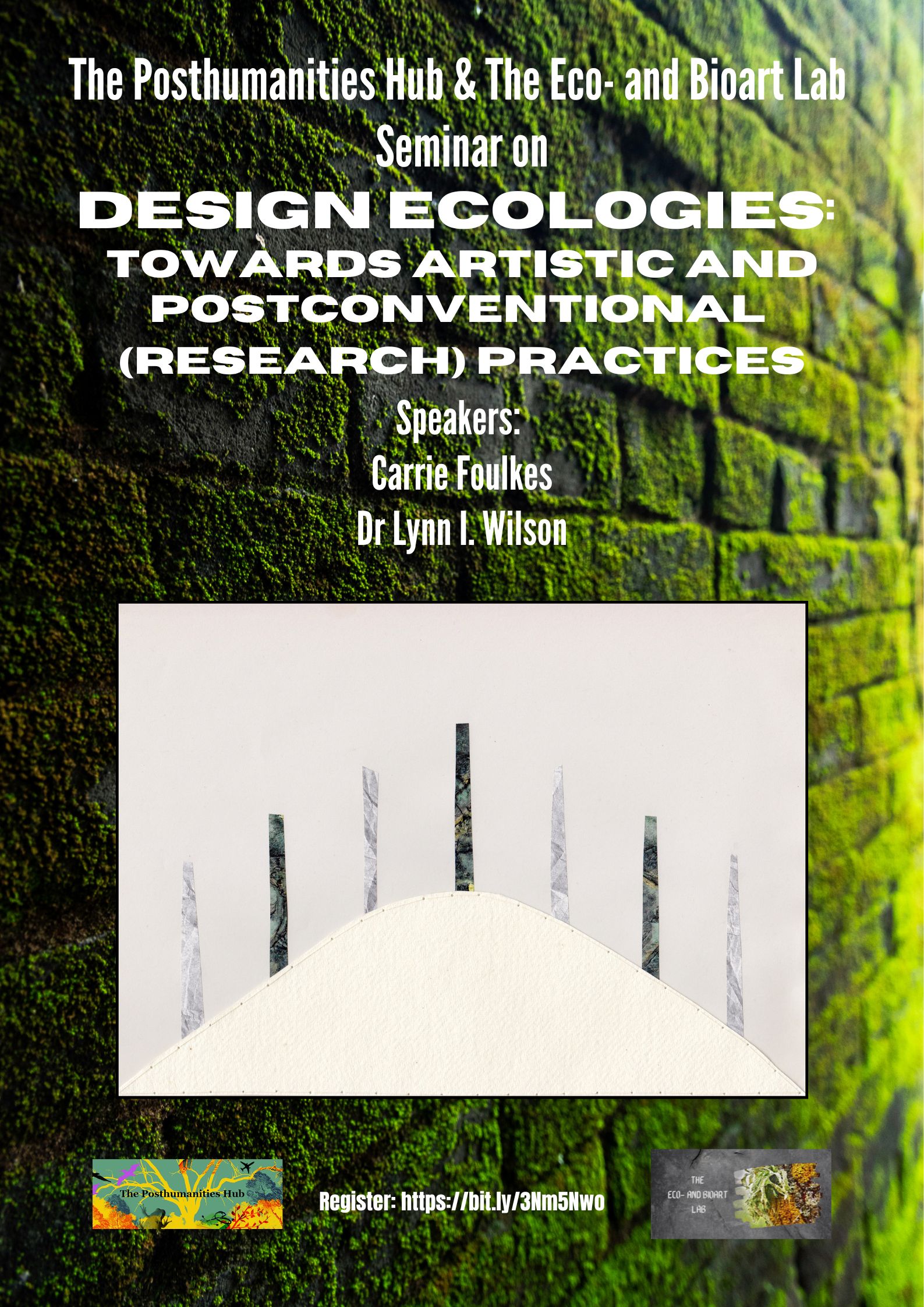-
Mineral Matterings: Encountering Minerals through design w/ Petra Lilja
Petra Lilja, 80% seminarMineral Matterings: Encountering Minerals through design 5th June 2023, 13:00-16:00Room E1, Konstfack and Zoom https://konstfack-se.zoom.us/j/63693025724 Doctoral student on the KTD Programme Discussant: […]
-

PH & EBL hybrid seminar on “Design Ecologies: Towards Artistic and Postconventional (Research) Practices”, 14th June!
Welcome to The Posthumanities Hub & The Eco- and Bioart Lab Hybrid Seminar on “Design Ecologies: Towards Artistic and Postconventional (Research) Practices” with speakers Carrie […]